
However, because the current system is still thin and weak, it requires strong participation of enterprises along with synchronous solutions in terms of institutions, capital and human resources, in line with the spirit of Resolution No. 57-NQ/TW on breakthroughs in science and technology development, innovation and national digital transformation.
Lesson 1: Startup incubation is not strong enough to break through
Incubation centers are creating a new breath of life for the Vietnamese startup ecosystem, from Hanoi , Ho Chi Minh City, Da Nang to other provinces and cities, contributing to nurturing many potential ideas, while developing a variety of models. However, with many difficulties and challenges, these models are not strong enough to become a launching pad for startups to break through.
Spreading the entrepreneurial spirit
From university lecture halls to local startup spaces, the spirit of innovation is spreading strongly. A typical highlight in Hanoi is the FIIS Innovation and Incubation Center (Foreign Trade University), which is considered a comprehensive ecosystem for ideas to take root and develop into businesses. Not only supporting startups, FIIS also promotes digital transformation, greening the model and encouraging social startup values with sustainable business orientations such as circular and inclusive economy.
Director of FIIS, Associate Professor, Dr. Le Thi Thu Ha said: “The center considers training as the foundation, bringing the entrepreneurial spirit to students and lecturers, helping young people approach innovative thinking right from the classroom”. Many student projects have won high awards in domestic and international competitions, demonstrating the potential of the startup “seeds” nurtured here.
Besides FIIS, models such as BK-Holdings (Hanoi University of Science and Technology) or the Center for Knowledge Transfer and Startup Support (Hanoi National University) have also become important supports for the capital's startup movement. From here, many projects on education technology, smart agriculture, and digital healthcare have been successfully incubated, raised capital, expanded the market, and even reached out internationally.
Looking more broadly, the Vietnamese startup ecosystem is making clear progress. Hanoi promotes social startups associated with green transformation; Ho Chi Minh City currently has about 2,200 startups, hundreds of investment funds, aiming to be in the top 100 global ecosystems by 2030.
Da Nang stands out with its policy of supporting 31 science and technology tasks, incubating and accelerating 189 projects, and forming 83 innovative start-ups. In response to the need for digital transformation, innovation centers, incubators and co-working spaces not only provide infrastructure but also serve as a place to share knowledge, connect the state, businesses and communities, and form an open network.
According to Mr. Lam Dinh Thang, Director of the Department of Science and Technology of Ho Chi Minh City, the Center for Creative Entrepreneurship has just been put into operation as the first “common house” in the southern region. In just the first few months of the year, the city has accepted 15 pre-incubation projects and 40 incubation projects, demonstrating its determination to invest in infrastructure, creating a launching pad for a new generation of startups.
Mr. Do Tien Thinh, Deputy Director of the National Innovation Center (NIC), emphasized that NIC is becoming a launching pad where many businesses grow from small ideas, after incubation, they have raised capital, expanded internationally, and created hundreds of jobs. In fact, agriculture has startups applying the Internet of Things (IoT), artificial intelligence (AI) to monitor crops, and healthcare has a remote medical examination and treatment platform... With a supportive ecosystem, Vietnamese startups can go far, but also require perfecting policies and institutions to make a stronger breakthrough.
Gap to be filled
Although considered the core of the ecosystem, incubators still face barriers: lack of sustainable financial resources, scarce specialized human resources, and loose linkages between institutes and businesses. In Da Nang, according to the leader of the city's People's Committee, the innovation infrastructure is scattered, lacking leadership from large corporations, and intermediary organizations are weak. The city has invested in high-tech parks, software parks, and innovation spaces worth VND489 billion, but to make a breakthrough, it still needs more support from the Central Government.
In the era of digital transformation, incubators and innovation centers are increasingly asserting their role as launching pads for the startup ecosystem, not only providing infrastructure, capital and market connections, but also helping startups overcome the initial stage to develop sustainably.
Even Ho Chi Minh City, the “cradle” of science and technology in the country, lacks high-quality human resources for semiconductors, AI, IoT, forcing it to increase cooperation with universities. This reality is even more evident through the story of Le Duong Company, a technical enterprise emerging from IoT. The enterprise has built a team of engineers focusing on IoT, databases, encryption and AI applications, creating many smart monitoring and control solutions, typically HSAFE, a labor safety monitoring system.
However, according to Director Le Dinh Tuyen, the biggest challenge is still human resources. Not only Le Duong but most startups have difficulty in finding, training and retaining talented people, especially when capital is limited and it is difficult to ensure competitive treatment. In the technology field, human resources are increasingly scarce, making the human resource problem a decisive factor for survival.
Many other provinces and cities also show uneven development. For example, Ha Tinh province does not have economic and technical standards for creative startups, which are not specified in legal documents, especially lacking a venture capital mechanism, a key factor in nurturing breakthrough ideas. Not only locally, even experienced models in universities such as BK-Holdings also face difficulties in expanding due to financial and space constraints and a lack of clear legal corridors.
Mr. Do Tien Thinh frankly said: “The number of innovation centers in Vietnam is still very small, with limited operations and a lack of resources. In Hanoi, where conditions are favorable, the number of official centers can be counted on the fingers. This situation shows that the support system is developing much slower than the needs of hundreds of thousands of businesses.”
This picture shows that the bottleneck is not only in the number of centers, but also comes from the business side and the general support environment.
Dr. Tran Van Khai, Vice Chairman of the National Assembly's Committee on Science, Technology and Environment, said that Vietnamese enterprises have not yet become the main driving force of innovation because investment in research and development is limited and the connection with institutes and universities is not strong. Many small and medium enterprises want to innovate but do not know where to find technology and experts, while research institutes with available patents find it difficult to commercialize. The lack of strong enough intermediary organizations to connect the two sides is becoming a systemic bottleneck of the entire innovation ecosystem.
In fact, international lessons show that most inventions and innovations are commercialized by businesses, while in Vietnam, contributions to research and development still mainly come from foreign direct investment, the domestic private sector has not invested accordingly. The difficulty that startups and small and medium enterprises in Vietnam face is the lack of technical infrastructure for research and development, from laboratories to prototyping workshops. Most startup support facilities are small-scale and have limited resources, making it difficult for projects to test and perfect their products.
Dr. Pham Hong Quat, Director of the Department of Startups and Science and Technology Enterprises (Ministry of Science and Technology) said that the major challenge of the current ecosystem is that the number of entrepreneurs is still small compared to the population size, technology unicorns are rare, and the ability to reach out internationally is still weak. Venture capital sources tend to decrease, while the culture of innovation has not yet penetrated deeply, the spirit of daring to experiment and accept risks is not popular.
Therefore, it is urgent to build a mechanism to encourage domestic enterprises to participate more strongly in innovation.
(To be continued)
Source: https://nhandan.vn/dong-luc-cho-quoc-gia-khoi-nghiep-so-post908803.html




![[Photo] General Secretary To Lam chairs a working session with the Standing Committee of the Government Party Committee](https://vphoto.vietnam.vn/thumb/1200x675/vietnam/resource/IMAGE/2025/9/17/cf3d855fdc974fa9a45e80d380b0eb7c)
![[Photo] Science and Technology Trade Union honors exemplary workers and excellent union officials](https://vphoto.vietnam.vn/thumb/1200x675/vietnam/resource/IMAGE/2025/9/17/842ff35bce69449290ec23b75727934e)








































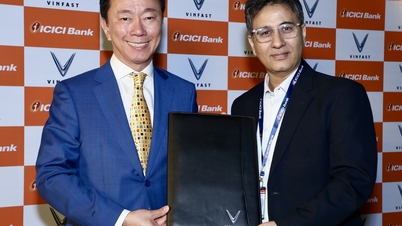













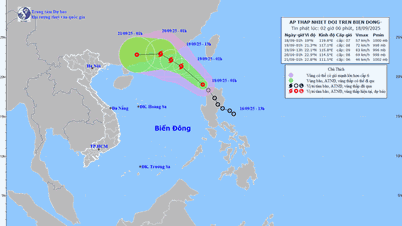












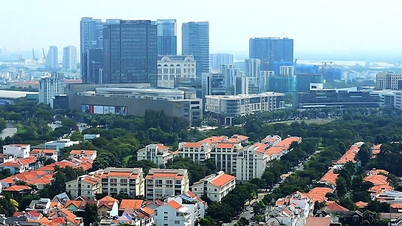





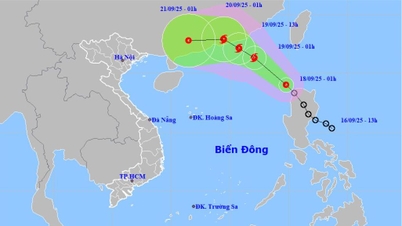
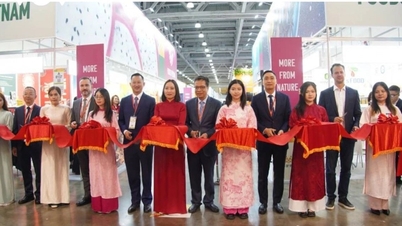











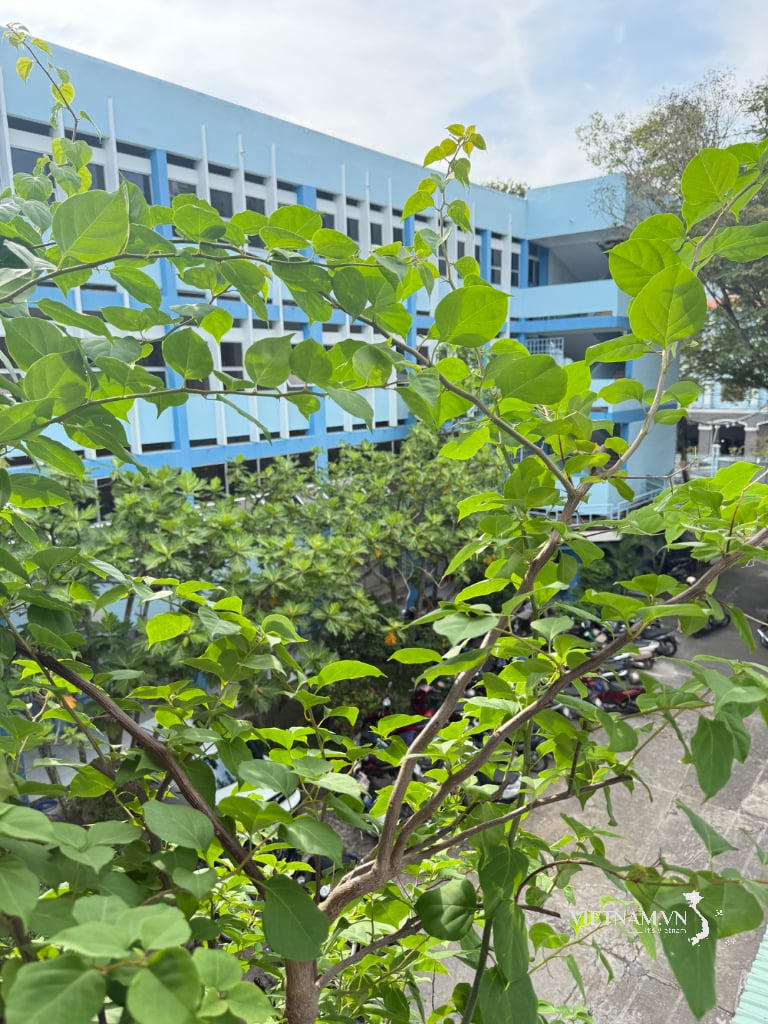
Comment (0)